Yuriy Reshetnikov, an expert in the field of religion, candidate of philosophical sciences and former head of the State Committee of Ukraine for Nationalities and Religions, has prepared his answers to the main questions that arise today among believers of the Ukrainian Orthodox Church and those who are interested in the topic of the new anti-religious initiative of people’s deputies. The Information and Education Department of the UOC published a commentary of the religious scholar on this subject. We submit the commentary in full.
“Now the entire information space is oversaturated with information that today the Verkhovna Rada of Ukraine has allegedly banned the activities of the Russian or Moscow Orthodox Church in Ukraine.
Let’s try to understand:
1. Is there a Russian or Moscow Orthodox Church in Ukraine?
No. According to the official data of the State Service of Ukraine on Ethno-politics and Freedom of Conscience, there is no such church in Ukraine.
Can the Verkhovna Rada ban the activities of something that does not exist – the answer is obvious.
2. Is the Ukrainian Orthodox Church “Russian” or subordinate to Moscow or the Moscow Patriarchate?
No. The Ukrainian Orthodox Church is the Ukrainian Orthodox Church founded in the city of Kiev at the time of the Baptism of Rus by the Holy Equal-to-the-Apostles Grand Prince Vladimir. The Ukrainian Orthodox Church is not only the episcopate and clergy, but also millions of citizens of Ukraine. At all times the Ukrainian Orthodox Church has been and is the Church of the Ukrainian people, uniting millions of Ukrainian citizens who are patriots of Ukraine, who daily work for the good and future of our country, protect its sovereignty. The Ukrainian Orthodox Church has consistently supported and maintains the independence of our state. Many believers of the Ukrainian Orthodox Church have given their health and their very lives, protecting the peace and quiet of their fellow citizens.
The Ukrainian Orthodox Church was officially registered with this name in the state authorities back in 1990. According to the Patriarchal Charter (Tomos) of 1990, the Ukrainian Orthodox Church is independent and autonomous in its governance. The Council of the Ukrainian Orthodox Church on May 27, 2022 adopted the relevant additions and amendments to the Statute on the governance of the Ukrainian Orthodox Church, testifying to the full autonomy and independence of the Ukrainian Orthodox Church.
The governing body of the Ukrainian Orthodox Church is the Metropolitanate of Kyiv. The Primate of our Church is His Beatitude Metropolitan Onuphrius of Kyiv and All Ukraine.
3. Has the Verkhovna Rada of Ukraine today adopted a decision to ban the activities of the Ukrainian Orthodox Church?
No. It did not. The statement that allegedly today the Verkhovna Rada of Ukraine adopted a decision to ban the activities of the Ukrainian Orthodox Church is a conscious lie and manipulation, which contain signs of disrespect for the highest and only legislative body of our state.
4. Did the Verkhovna Rada of Ukraine plan to adopt today a decision to ban the activities of the Ukrainian Orthodox Church?
No. It did not. There was no question with such wording in the agenda of today’s meeting of the Verkhovna Rada of Ukraine.
5. What did the Verkhovna Rada of Ukraine adopt today?
The Verkhovna Rada of Ukraine adopted today in the FIRST reading the draft Law of Ukraine “On Amendments to Certain Laws of Ukraine Concerning the Activity of Religious Organizations in Ukraine” (registration No. 8371), submitted to the Verkhovna Rada of Ukraine by the Cabinet of Ministers of Ukraine.
The “first reading” means that this is not yet the final adoption of the said draft law, it will still be worked out in the Verkhovna Rada of Ukraine, after which it will be considered in the second reading.
6. What does the mentioned draft law provide for?
The Draft Law proposes to prohibit the activities of religious organizations that are affiliated with the centers of influence of a religious organization (association), the governing center (management) of which is located outside Ukraine in a state that is carrying out armed aggression against Ukraine.
The draft law provides for the following mechanism for terminating the activities of such religious organizations:
a) conducting religious expertise by the central body of executive power realizing the state policy in the sphere of religion;
b) issuance of instructions to eliminate violations revealed by the results of religious expertise within one month from the date of issuance of such instructions;
c) appealing to the court with an administrative claim on termination of activity of a religious organization in case of non-fulfillment of its instructions on elimination of violations.
7. Does today’s decision of the Verkhovna Rada of Ukraine mean that from now on all churches of the Ukrainian Orthodox Church will be closed?
No. It does not. The Verkhovna Rada of Ukraine did not make such a decision today, and the Draft Law, adopted today only in the first reading, provides for a rather lengthy procedure for terminating the activity of a religious organization in case it is determined that it is affiliated with the centers of influence of a religious organization (association), the governing center (management) of which is located outside Ukraine in a state that is carrying out armed aggression against Ukraine.
8. Can the activity of the Ukrainian Orthodox Church be banned?
No. It cannot. The Church of Christ cannot be banned at all. Christ Himself says: “I will build My Church, and the gates of hell shall not prevail against it” (Gospel of St. Matthew the Apostle, 16th chapter). How many such attempts there were, starting from Nero and ending with the Soviet regime, but the Church of Christ lives.
The Ukrainian Orthodox Church cannot be banned even legally, because it is not a legal entity, according to the current legislation of Ukraine, but is represented by the Kyiv Metropolis, diocesan administrations, monasteries, spiritual educational institutions, missions and religious communities, each of which is a separate legal entity. Consequently, according to the current legislation, only a separate legal entity – a religious community, monastery, etc. – can be terminated, not the Church as a whole. – and not the Church as a whole.
9. Does “cessation of religious organization” really mean cessation of worship life?
No. It does not. The First Church had no state registration and no temples, but it lived a rich liturgical life in catacombs or other places. So did our predecessors during the Soviet regime. So did our brothers and sisters who have had their temples seized in recent years, but they remain faithful to the Church and live Christ and His Church. We all love our Kiev-Pechersk Lavra, but the experience of recent months has clearly shown that those who really want to pray will pray even near the Lavra, if the authorities have banned entry to the shrine.
Finally, Ukrainian legislation allows religious communities to operate without state registration.
10. Does this mean that there are no threats to the Ukrainian Orthodox Church?
No, unfortunately, it does not. Observing today the euphoria of people’s elected representatives and information noise about the alleged ban of the UOC, unfortunately, we can assume further seizure of our churches by stupefied and misled people who will go to storm the churches with a firm belief that the Ukrainian Orthodox Church is allegedly forbidden, hostile, Russian, etc.
In addition, between the first and second reading, the people’s deputies of Ukraine (and only they) have the right to make their own amendments to the bill. Again, observing today their euphoria, their desire to fight with a significant part of their own people, with the citizens of Ukraine – the faithful of the Ukrainian Orthodox Church, a significant part of whom just made those who are so happy today people’s deputies, it is scary to imagine what else they can offer to the bill and what else this Verkhovna Rada can vote for.
11.What is to be done?
To continue:
1) pray to God, repenting of our sins, praying to Him for our Church, our state, for peace on the long-suffering Ukrainian land;
2) to trust in God and trust Him;
3) zealously participate in the divine services in our churches, appreciating every opportunity to do so, “valuing the time, for the days are evil” (Epistle of St. Paul to the Ephesians, Chapter 5)”.
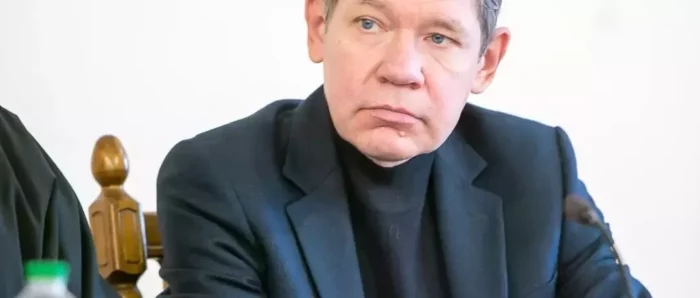
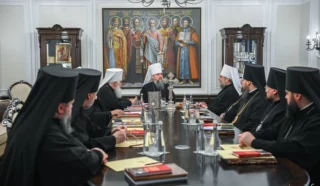
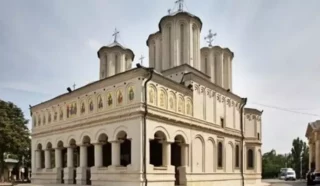
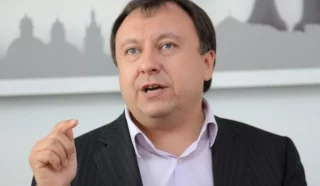
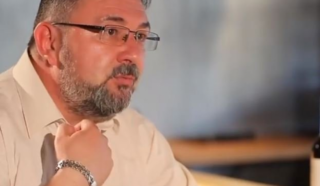
1 Comment. Leave new
Это конечно хорошо всё написано.
Но, если бы всё это вложить в одурманенные головы депутатов, голосовавших за этот закон, то может что-то и измениться.
У каждого депутата должна быть общественная приёмная для контакта с населением. Пусть верующие люди с их избирательных округов идут в эти приёмные и спрашивают депутатов зачем они голосовали против своих же выборщиков. Бог им всем в помощь.